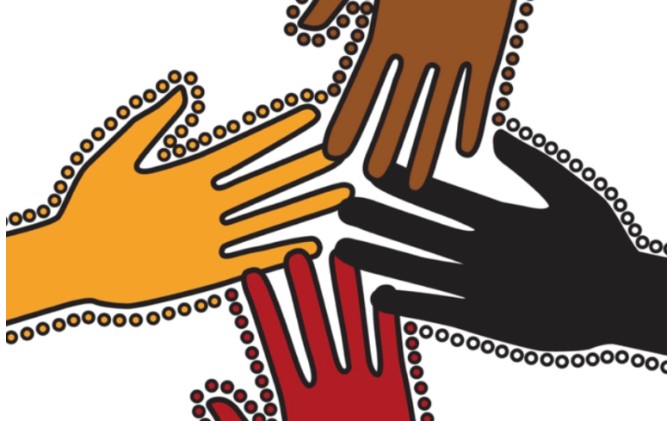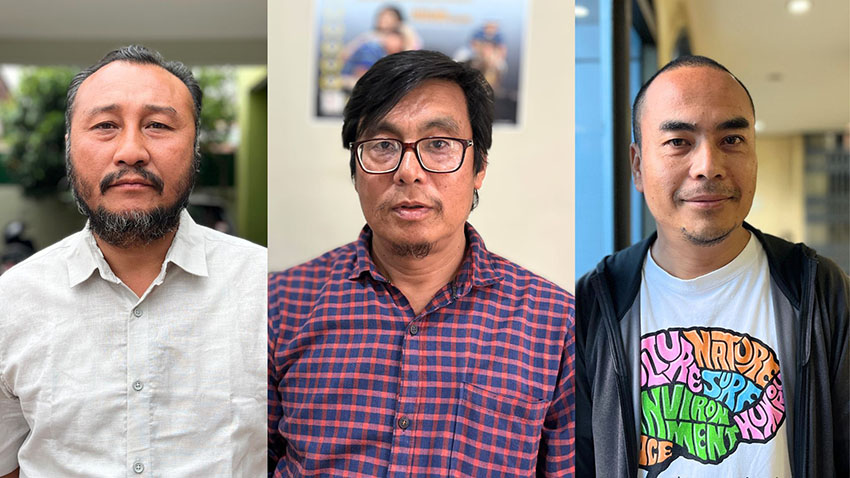Some panic and some not at all, the imposition of President’s Rule in Manipur. For the people who have lived under heavy militarisation for the past several decades, what more fear does it get to instill? While seeing the act as to establish a rule of law acknowledging the failure of the state legislatures to provide hope of reconciliation, the CM resignation was also seen due to internal feud among the BJP legislatures. Another question is how long the centre can buy time to get a consensus within the party and not dismiss them. That said, arrests of armed groups cadres have been reported in the last few days.
I had a conversation with my friend from Maharashtra who said the imposition of President Rule is seen as a breach of federalism there and asked how it is perceived in Manipur. I laughed as if there had been one. Double engine, federalism, racism, they don’t go hand in hand.
Double engine has failed to solve the conflict, provide a solution to the ethnic differences of the legislatures in the party, all which I argue as racist. One can’t imagine such a situation in other parts of India without strong intervention from the centre. With a history of structural marginalization of the people and land through militarization, developmental aggression, racism, this lack of efforts from the centre ruled by BJP to end the conflict is also a rejection of the suffering of the people of different color which is racist.
BJP has ascended the throne in Delhi in recent elections but by keeping the Manipur assembly in suspended animation, I wonder if they are afraid that they will descend from Manipur. In a region like Manipur where the political party at the centre always holds power in the state, this “suspended animation” hints at a lack of confidence. With no amount of development grants, preaching through populist cult figures can erase the trauma of the people having lived through this conflict.
A serious concerted effort has yet to be seen. But where should it start? A feast. Yes, a feast, with all political and community leaders of different ethnic groups. When any differences arise, we try to find something common we share altogether. In this case, let’s give it a shot with food. Because food is universal. We all think, so there will be differences in our ideas. We all speak, so there will be differences in opinions. But we all eat, food habits might be the same or not, but the sense of joy when we eat is something we all share.
Eat, fill your stomach and talk. Talk until you find a shared space of your political differences. Eating together will bridge the gap of chairs you all sit. A couple after a fight cooking together, a boyfriend buying chocolates when his girlfriend is during her period, a candidate arranging grand feasts to voters during an election campaign, two scholars after a heated debate in a seminar eating together during refreshment, all bonded over acts of sharing food. If everything else looks difficult, why don’t we go with the golden age-old saying “start from the basics”.
I have a junior from the Kuki community. We first met at a meeting arranged by a Northeast students’ group to organize a talk on the conflict. I was not comfortable, I sensed he was too. All I had in my mind was to tell them how Meiteis had been portrayed wrong, I sensed he was too how his community had been portrayed wrong. Nothing happened that day. But afterwards, we started greeting each other every time we met.
On Ningol Chakkouba, I invited my colleagues including him. He warmly accepted and deep down I felt overcoming a wall of hatred together. Most of our conversation revolved around food. We started talking about the conflict but not much. But at least food made us sit together and sitting together made us talk.
Without having to worry about the ability to bring a negotiation immediately, leaders of both communities must sit down sharing a common space with food. This is what Sam Chapple-Sokol termed as culinary diplomacy – the use of food and cuisine as an instrument to create cross-cultural understanding in the hope of improving interactions and cooperation.
All our co-existing communities already have a history of settling their differences over food. What I worry about is are the meitei and kuki leaders willing to eat together this time? As it is evident that all previous initiatives of the centre, even if they were not, seem not working, my appeal to the centre is “why don’t you try arranging a feast sitting them together?”
References:
Chapple-Sokol, S. (2012). Culinary diplomacy: Breaking bread to win hearts and minds. Fletcher School of Law and Diplomacy, Tufts University.












